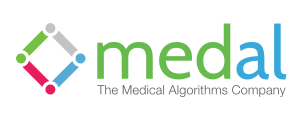Some aspects of medicine have not changed very much over the centuries. As new decision support systems become available some of these vestiges may be replaced by automation. Physicians are already dealing with massive disruption. Regulations make private practice almost impossible. There are constant demands to do more for less. There is a constant stream of quality measures that do nothing to improve quality but which guarantee physicians are not paid. No one thing is that bad but sometimes it feels like death by a thousand cuts. Older physicians are calling it quits and younger physicians have to deal with student loans. When will it stop? Will the new information technologies just be one more thing to strip away everything that is left to make a medical practice worthwhile? How will you respond to the change? Embrace it or resist it?
Ballad of Doctor John Henry (Abbreviated)
The hospital administrator said to Doctor John Henry
“Gonna bring that computer ’round
Gonna bring that computer out on the job
Gonna diagnose patients down, Lord, Lord
Gonna diagnose patients down.”
Doctor John Henry told his administrator
“A man ain’t nothing but a man
But before I let your computer beat me down
I’ll die with a stethoscope in my hand, Lord, Lord
I’ll die with a stethoscope in my hand”
Now the man that wrote the computer code
Thought he was mighty fine
But Doctor John Henry diagnosed fifteen patients
The computer only diagnosed nine, Lord, Lord
The computer only diagnosed nine.
Doctor John Henry hammered in the hospital
His reflex hammer was striking fire
But he worked so hard, he broke his poor heart
He laid down his reflex hammer and he died, Lord, Lord
He laid down his reflex hammer and he died.
There is little doubt in my mind that things in healthcare will get a lot worse before they get better. There will be a lot of unanticipated (but not unpredictable) consequences as bureaucrats, administrators and business types scramble for money and control. Once a physician becomes an employee, who is going to advocate for the patient? Who will be willing to help the patient who cannot afford a visit or medication? Who will go that extra mile? A person running some computer model in Washington may be quite pleased but how will the individual patient feel who gets “smoothed out” in the analysis? Why should any of the people in charge care or be held accountable?
But the underlying basics have not changed. People will continue to get sick and will be scared and vulnerable. Caring people with training, experience and skills will outperform. Patients and providers will not settle for being interchangeable cogs. Information technologies such as automated medical algorithms have a great potential to improve care while controlling costs. The human mind is limited in handling the vast amount of information available. We respond to the explosion in knowledge by creating medical specialities, subspecialties and sub-subspecialities ad nauseum. With automated algorithms the clinician will be able to achieve a lot more in less time. Many of the failures related to failure to communicate or to follow-up can be eliminated. These technologies may disrupt today but save tomorrow, if we can only survive that long.

